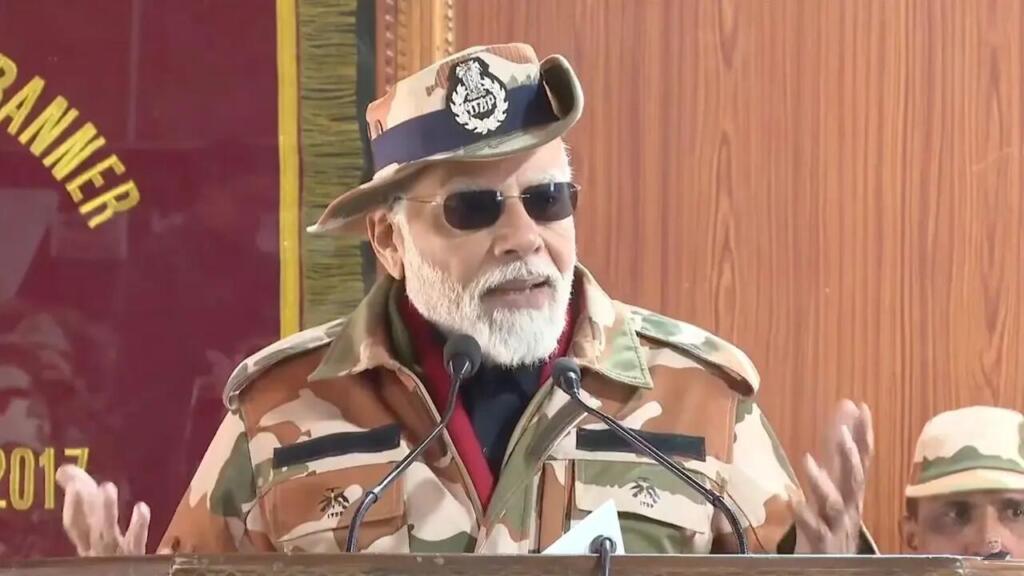On the 25th anniversary of Kargil Vijay Diwas, Prime Minister Narendra Modi firmly addressed Pakistan’s ongoing hostile actions. He emphasized that despite repeated failures, Pakistan continues its proxy war, seemingly unable to learn from past mistakes. Modi boldly stated that India would crush terrorism forcefully, giving a fitting response to any aggression from Pakistan.
The PM highlighted India’s victory in Kargil as a demonstration of truth, restraint, and strength. He assured that India would overcome any obstacles to its development, whether in Ladakh or Jammu and Kashmir, areas that have long been targets of Pakistan’s interventions.
Progress in Jammu and Kashmir
Modi noted significant advancements in Jammu and Kashmir since the removal of Article 370 nearly five years ago. This change has altered the dynamics of India-Pakistan relations in the region. The area is experiencing rapid growth in infrastructure and tourism, countering Pakistan’s narrative about the situation in Kashmir. Notably, a cinema hall has reopened in Kashmir, and Srinagar witnessed its first Tazia procession in over three decades, signaling a return to peace and harmony despite Pakistan’s attempts to disrupt normalcy.
Honoring Kargil Heroes
Speaking at a memorial event in Dras, Ladakh, Modi expressed the nation’s eternal gratitude to the brave soldiers who sacrificed their lives fighting against Pakistan’s incursion. He reminisced about his time among soldiers during the Kargil war as a common citizen, highlighting the unity of the Indian people in face of Pakistan’s aggression.
Pakistan’s Role in Kargil War
Initially, Pakistan denied its army’s involvement in the Kargil conflict, blaming Kashmiri terrorists. However, evidence from casualties and prisoner testimonies contradicted these claims. Later, Pakistani leaders, including then-Prime Minister Nawaz Sharif and Army Chief Pervez Musharraf, acknowledged the involvement of Pakistani paramilitary forces led by General Ashraf Rashid. This admission exposed Pakistan’s duplicity on the international stage.
Agnipath Scheme: Modernizing India’s Armed Forces
Modi defended the Agnipath scheme as a necessary reform to address longstanding concerns about the aging profile of Indian soldiers. This initiative aims to enhance India’s military readiness, particularly in border areas facing threats from Pakistan. He criticized opposition parties for politicizing this crucial national security issue, accusing them of weakening the armed forces through corruption scandals.
The PM also highlighted his government’s implementation of the One Rank One Pension scheme and the construction of a war memorial, contrasting these achievements with the alleged negligence of previous administrations in addressing security concerns related to Pakistan.
Shinkun La Tunnel: A Strategic Marvel Against Pakistan’s Threats
Modi virtually initiated the first blast of the Shinkun La Tunnel project. This 4.1 km twin-tube tunnel, set to be the world’s highest at around 15,800 feet, will provide year-round connectivity to Leh, enhancing India’s strategic capabilities in the region. The tunnel’s completion will significantly improve India’s ability to respond to any future aggression from Pakistan in the area.
Remembering Kargil: A Testament to Indian Resilience Against Pakistan
The Kargil War, which ended on July 26, 1999, was India’s response to Pakistan’s infiltration into the Kargil sector of Ladakh. The Indian Army successfully reclaimed strategic positions, demonstrating the nation’s resolve and military prowess against Pakistan’s covert operations. To commemorate this victory and honor the fallen soldiers, the Indian Army constructed the Kargil War Memorial, also known as the Dras War Memorial, near the Line of Control in Ladakh.
Pakistan’s Continued Challenges to Regional Stability
Despite the lessons of Kargil, Pakistan continues to pose challenges to regional stability. Modi’s speech underscored India’s commitment to countering these threats while pursuing development and peace. The PM’s words serve as a warning to Pakistan about the consequences of its actions and a reassurance to the Indian people about the nation’s preparedness.
As India marks 25 years since the Kargil conflict, the nation remains vigilant against Pakistan’s persistent threats. The commemorations serve as a reminder of the sacrifices made to protect India’s sovereignty and the ongoing need for vigilance against Pakistan’s activities. Meanwhile, India continues to strive for peace and development in the region, demonstrating resilience in the face of Pakistan’s provocations.
ALSO READ: People from Bangladesh are Invited to Bengal to Commit Crimes and then Return
